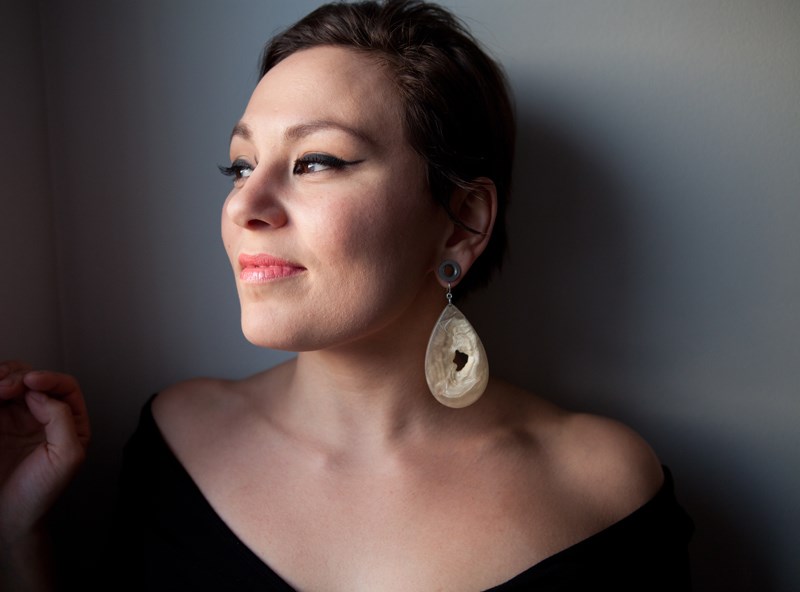Vancouver Opera Festival, April 28-May 13. For more information visit festival.vancouveropera.ca.
The city is going to be getting a heavy dose of opera over the next two weeks as Vancouver Opera hosts its inaugural festival.
Fans of the art form, as well as those less in the know, will have the chance to check out three revered operas from different time periods – but organizers of the festival say some of the event’s high-notes will be delivered from unexpected sources.
“I’m a big fan of festivals and festivals are a kind of format which allows you to do types of programming and partnerships that you can’t easily do in a regular season,” says Vancouver Opera general director Kim Gaynor. “That was a big motivation for Vancouver Opera.”
The festival is running from April 28-May 13.
In addition to offering the celebrated operas Otello, Dead Man Walking and The Marriage of Figaro over the 16-day run, Vancouver Opera is also commissioning numerous visual arts installations, collaborations with other organizations in the arts community, performances by acclaimed singers and performers, as well as talks and forums.
Last night, provocative multimedia artist Paul Wong presented a new work specifically for the Vancouver Opera Festival, says Gaynor. The piece, entitled Five Octave Range, is a multiscreen video installation, created after Wong invited four opera singers to perform for him in front of a camera. The idea is for the installation to function as a portal, allowing viewers to have an up-close and personal experience with opera as a form.
“This will give an entry point into opera,” says Gaynor about Wong’s installation, which will be available to the viewing public in the festival tent on the Queen Elizabeth Theatre Plaza for the run of the festival.
Gaynor also points to Vancouver Opera’s partnership with Music on Main in hosting a performance by Juno and Polaris Music Prize-winning Inuit throat-singer Tanya Tagaq, who’ll be performing at the Vogue Theatre May 12.
Although Tagaq wouldn’t necessarily be categorized as an opera singer, her striking vocal performances could definitely fit into the operatic realm. “We’re trying to give people lots of different points of entry,” says Gaynor.
Gaynor, who became Vancouver Opera’s general director after running a classical music festival in Switzerland for the past 10 years, specifically mentions other entry points, such as a documentary on an opera singer being presented in partnership with the DOXA Documentary Film Festival.
She also mentions a free event taking place at the Queen Elizabeth festival tent May 11 called, Whose Story Is It? Traditional Opera Through Modern Eyes. The one-hour talk deals with the challenges many contemporary opera companies face when addressing representations of race and colonization in their work.
“A lot of operas were written in another century and when we try and reinterpret them in our century who has the right to do that and what can we change and can’t we change? This is a very contemporary type of subject,” she says.
Besides the extra programming being featured over the course of the festival, there’s also the main star – the operas themselves.
Gaynor recommends Mozart’s The Marriage of Figaro as an excellent gateway opera for those perhaps less familiar with the craft, touting the opera’s melodic genius and comedy.
She also recommends Dead Man Walking, the story of a convicted Louisiana murderer who is befriended by a Catholic nun that had its premiere in 2000, for those interested in contemporary opera.
There was some uproar generated in 2015 when Vancouver Opera announced it would be scrapping its regular season format in favour of moving over to a spring festival format.
Opera fans are still getting the spring festival in the form of the one kicking off tonight, but it has also been announced the organization will still be offering stagings of opera performances throughout the 2017-2018 season as well.
“What we found as we were going through that whole process is speaking to subscribers and people who come a lot to the opera is that there is a core group of people that prefer to have their opera spaced out over the year,” Gaynor says.
For those still unsure about opera, Gaynor hopes this inaugural festival can be an excellent primer.
“You just have to go with your ears open,” she says. “You’re not going to like everything, but there might be something that actually for you is life-changing. … You just have to be curious enough to listen.”



